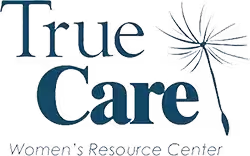Never thought you would be faced with an unplanned pregnancy? It’s a hard reality to take in and it can feel overwhelming at times to make a pregnancy decision. Know that you are not alone. If you are considering taking the abortion pill, you will want to be aware of the risks and informed about the medical process.
The risks of the abortion pill are serious and vital to understand before moving forward. Be informed and take your time with this decision. It will affect your future in a big way.
What Is the Abortion Pill?
The abortion pill is also known as a medication abortion, which involves ending a pregnancy using two types of medications (abortion pills). This procedure does not require any type of medical surgery and can be started in a medical office or at home. Visiting a medical professional or doctor before and after the process is essential to your health.
How Does the Abortion Pill Work?
The two types of abortion pills work hand in hand to end a pregnancy. The first is called Mifepristone and the second is Misoprostol. These medications are normally taken within seven weeks of the first day of your last period.
Oral Mifepristone
Mifepristone is the first abortion pill taken and works to block the hormone called progesterone. This causes the uterus lining to thin and stops the embryo from growing or implanting. This pill is only available with a doctor’s prescription and is normally taken within a doctor’s office or clinic.
Oral Misoprostol
Misoprostol, the second abortion pill taken, is used to make the uterus contract and expel the embryo through the vagina. This pill is taken after Mifepristone, hours or days later. You will need to visit a doctor after to see if the abortion was completed (FDA).
The Risks of the Abortion Pill
Understanding the risks of the abortion pill can help you determine if you want to move forward. Here are some of the most common physical risks involved with a medication abortion, involving the two types of abortion pill:
- An incomplete abortion (may need to be followed by surgical abortion)
- Heavy and prolonged bleeding
- Infection
- Fever
- Digestive system discomfort
Here are some common emotional risks of abortion:
- Grief
- Remorse or regret
- Sadness
- Anger
- Symptoms of depression
- Irritability
- Poor concentration
- Anxiety
Find out more about all your pregnancy options at True Care Women’s Resource Center. We offer services including pregnancy testing, options consultations, and ultrasounds completely confidential and free of charge.
Call us today at (307) 215-9684 to learn more and set up an appointment. We are here to help.
